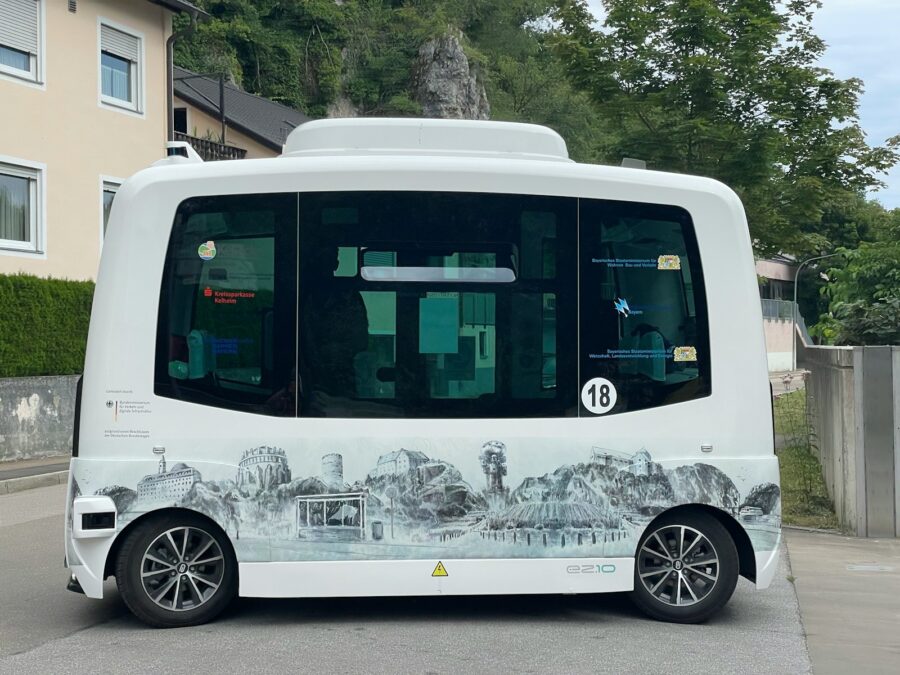Autonomous Buses: Pioneering the Future of Public Transportation
The Promise of Autonomous Buses in Smart Cities
The advent of autonomous buses in public transportation marks a significant milestone in urban mobility, particularly in forward-thinking cities like Riyadh and Dubai. These self-driving buses are set to revolutionize the way people commute, offering a more efficient, safe, and environmentally friendly alternative to traditional public transport. In Saudi Arabia and the UAE, where smart city initiatives are in full swing, the deployment of autonomous buses is a testament to the region’s commitment to innovation and sustainable urban development.
Autonomous buses leverage advanced technologies such as Artificial Intelligence (AI), sensors, and machine learning algorithms to navigate urban environments with minimal human intervention. These buses can optimize routes, reduce traffic congestion, and improve overall transport efficiency. In Riyadh, pilot projects are underway to integrate autonomous buses into the city’s public transportation network, aiming to enhance connectivity and reduce travel times. Similarly, Dubai is at the forefront of testing autonomous buses, aligning with its vision to become a global leader in smart transportation solutions.
The benefits of autonomous buses extend beyond operational efficiency. These vehicles are designed to prioritize passenger safety, equipped with state-of-the-art collision avoidance systems and real-time monitoring capabilities. By reducing the likelihood of human error, autonomous buses can significantly lower accident rates and enhance the overall safety of public transportation. In Saudi Arabia, where road safety is a critical concern, the adoption of autonomous buses is seen as a strategic move to improve urban mobility and ensure the well-being of commuters. In Dubai, the emphasis on smart city infrastructure supports the seamless integration of autonomous buses, promoting a safer and more reliable public transport system.
Integrating Autonomous Buses into Urban Transport Networks
Strategic Implementation and Change Management
The successful integration of autonomous buses into urban transport networks requires careful planning and effective change management. For business executives and mid-level managers overseeing these projects, understanding the complexities involved is crucial. In Saudi Arabia and the UAE, government agencies and private sector stakeholders are collaborating to develop comprehensive frameworks for the deployment of autonomous buses, addressing regulatory, infrastructural, and operational challenges.
Change management plays a pivotal role in the transition to autonomous public transportation. Executives and managers must navigate the intricacies of technology adoption, workforce training, and stakeholder engagement. In Riyadh, strategic initiatives are focused on building public trust and awareness about the benefits of autonomous buses, ensuring a smooth transition for commuters and operators alike. Executive coaching services are instrumental in equipping leaders with the skills needed to manage this change, fostering effective communication and decision-making processes.
Furthermore, the integration of autonomous buses necessitates robust project management practices. From pilot testing to full-scale deployment, meticulous planning and execution are essential to ensure the success of these initiatives. In Dubai, where the pace of technological advancement is rapid, project managers are leveraging advanced tools and methodologies to oversee the implementation of autonomous buses, coordinating efforts across various departments and stakeholders. The use of data analytics and AI in project management enhances efficiency and accountability, driving the timely and effective completion of projects.
Driving Business Success and Sustainability
Economic and Environmental Impacts
The adoption of autonomous buses in public transportation offers significant economic and environmental benefits, contributing to business success and sustainability. In Saudi Arabia and the UAE, the focus on smart transportation aligns with broader economic diversification and environmental sustainability goals. By reducing reliance on fossil fuels and minimizing traffic congestion, autonomous buses can lower carbon emissions and promote cleaner urban environments.
From a business perspective, the deployment of autonomous buses opens new avenues for innovation and revenue generation. In Riyadh, companies involved in the development and operation of autonomous buses are exploring opportunities in data analytics, AI, and IoT integration, creating value-added services for commuters. Dubai’s emphasis on smart city initiatives fosters a conducive environment for startups and tech companies to collaborate on autonomous transportation projects, driving economic growth and technological advancement.
Moreover, the environmental impact of autonomous buses is profound. These vehicles are often powered by electric or hybrid engines, contributing to reduced air pollution and a smaller carbon footprint. In Saudi Arabia, the integration of autonomous buses into the public transportation system supports the country’s Vision 2030 objectives, emphasizing sustainability and environmental stewardship. Dubai’s commitment to becoming a leader in smart and sustainable transportation is reflected in its investments in autonomous bus technology, showcasing the city’s dedication to building a greener future.
Conclusion: Embracing the Future of Public Transportation
In conclusion, the rise of autonomous buses in public transportation is transforming urban mobility in Saudi Arabia and the UAE. These innovative vehicles offer a more efficient, safe, and sustainable alternative to traditional public transport, aligning with the smart city visions of Riyadh and Dubai. Through strategic implementation, effective change management, and robust project management practices, autonomous buses are set to revolutionize urban transport networks, driving business success and environmental sustainability. As cities continue to evolve, the adoption of autonomous buses will play a critical role in shaping the future of public transportation, ensuring a more connected, resilient, and prosperous urban environment.
—
#autonomousbuses #publictransportation #smartcities #SaudiArabia #UAE #Riyadh #Dubai #changemanagement #executivecoachingservices #AI #innovation

